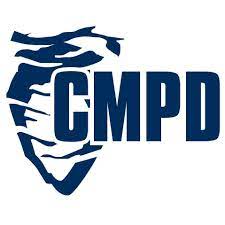The Sandy Springs Police Department is committed to developing our employees and investing in their future. The schools and programs listed below are one of the ways in which we accomplish this. As a result of these educational programs, we are able to provide the most effective and cutting edge police services to our citizens.
Southern Police Institute
The Southern Police Institute (SPI) is an integral part of the Department of Criminal Justice in the College of Arts and Sciences of the University of Louisville. The Administrative Officers Course is a twelve week (480 hour) in-residence, accredited college level educational program. The course curriculum is designed to develop informed, effective, ethically and technically competent law enforcement managers who are capable of assuming positions of leadership in their respective agencies. It is an appropriate course for individuals in or about to be promoted to middle and upper management positions. This comprehensive development program provides instruction in law enforcement issues, diagnostic problem solving, and administrative law. The varied methods of instruction used by the faculty permit participants to engage their individual creativity and initiative through the analytical examination of issues and problems faced by contemporary law enforcement executives. This course is required as a prerequisite for appointment to the position of police chief by many government jurisdictions throughout the United States. Numerous graduates of the Administrative Officers Course are among today’s law enforcement leaders directing agencies throughout the United States and abroad.
- Deputy Chief Chandler – 129th Class
- Captain Vik – 133rd Class
- Captain Spears – 135th Class
- Captain McNabb – 141st Class
- Lieutenant Lapides – 142nd Class
- Sergeant McGowan – 145th Class
- Lieutenant Finley – 146th Class
- Sergeant Inman – 149th Class
- Lieutenant Romero – 151st Class
- Sergeant B. Smith – 153rd Class
The Command Officer Development Course is SPI’s 400-hour flagship educational program for law enforcement mid to upper-level personnel which provides the foundation for practical law enforcement administration and a comprehensive overview of management practices. This course is offered in five (5) two-week sessions over a period of five months. The challenging course complements SPI’s Administrative Officers Course and is traditionally held off campus at host agency sites. The Command Officer Development Course has continuously evolved with changing social, economic, and political environments associated with local, state and federal units of government. Students return from the course with an understanding of effective modern strategies in policing, leadership, and management with an emphasis on the practical application and implementation of these strategies in their agencies. Graduates will be awarded the Organizational Management Certificate from the Southern Police Institute (beginning October 2023) and will be introduced to an extensive alumni network focused on advancing law enforcement efficiencies through evidence-based practice and community engagement.
- Sergeant Lockridge – 96th Class
- Sergeant Nelson – 96th Class
Georgia International Law Enforcement Exchange
The Georgia International Law Enforcement Exchange (GILEE) is a program through Georgia State University. GILEE offers law enforcement executive development programs by focusing on peer-to-peer on-site training and international cooperation. GILEE trains top U.S. law enforcement officials in Israel and in other countries to learn valuable security tactics from their counterparts. They learn best practices from expert peers who frequently handle bombings and other terrorist activities that are increasingly becoming serious threats all over the world. In return, international delegations come to Georgia to study how the U.S. deals with emergency management, homeland security, violent crime, special events, and the myriad of issues concerning urban and rural policing.
GILEE also provides special public safety and corporate security briefings, seminars, and workshops that facilitate cooperation between law enforcement and corporate security utilizing expert resources in the areas of asset protection, loss prevention, physical security, business continuity, terrorism, active shooting, and cyber-crime.
- Lieutenant Roskind – 16th Delegation
- Chief DeSimone – 23rd Delegation
- Major Nable – 26th Delegation
- Captain Spears – 27th Delegation
- Captain Vik – 28th Delegation
- Major Lindstrom – 29th Delegation
- Major Bohannon – 30th Delegation
- Captain McNabb – 31st Delegation
FBI National Academy
The FBI National Academy (FBINAA) is a professional course of study for U.S. and international law enforcement managers nominated by their agency heads because of demonstrated leadership qualities. The 10-week program—which provides coursework in intelligence theory, terrorism and terrorist mindsets, management science, law, behavioral science, law enforcement communication, and forensic science—serves to improve the administration of justice in police departments and agencies at home and abroad and to raise law enforcement standards, knowledge, and cooperation worldwide.
Sessions of approximately 220 officers take undergraduate and/or graduate courses at the FBI campus in Quantico, Virginia. Classes are offered in the following areas: law, behavioral science, forensic science, understanding terrorism/terrorist mindsets, leadership, communication, and health/fitness. Officers participate in a wide range of leadership and specialized training, where they share ideas, techniques, and experiences with each other, creating lifelong partnerships that transcend state and national borders.

- Sergeant Guy – 119th Session 1979
- Lieutenant Roskind – 207th Session 2001
- Sergeant Bertrand – 233rd Session 2008
- Detective King – 234th Session 2008
- Chief DeSimone – 239th Session 2009
- Major Lindstrom – 272nd Session 2018
- Major Bohannon – 281st Session 2022
Senior Management Institute for Police
SMIP is a program of the Police Executive Research Forum Program that provides senior police executives intensive training in the latest management concepts and practices used in business and government. A demanding three-week course, SMIP brings together a faculty from some of the nation’s top universities, successful law enforcement chief executives, and subject matter experts from the private sector. It is designed for mid-to-upper level police executives who will ultimately lead police agencies throughout the United States and other participating countries. SMIP’s curriculum addresses those issues that demand the attention of today’s forward-thinking law enforcement leaders. Classes are held at Boston University where participants learn and reside in the university’s finest classrooms and residence hall.
- Deputy Chief Chandler – Session 42
- Lieutenant Roskind – Session 44
- Major Lindstrom – Session 66
Georgia Command College
Following years of research and feasibility studies, law enforcement leaders in Georgia decided that an advanced Command-College program was desperately needed. In May of 1994, the Georgia Association of Chiefs of Police in partnership with Columbus State University accepted the challenge, making the establishment and implementation of a Command College a high priority.
The Command College held its first class in 1995. Over the last sixteen years, the one-class-per-year schedule has increased to four classes per year – two that begin in the fall and two that begin in the spring. Since the program’s inception, over 300 different agencies have participated in fifty-five different classes.
The Command College has expanded to include the Professional Management Program and the Executive College, which was developed by the CSU Justice Administration Outreach. In addition, the Justice Administration Outreach in partnership with the Georgia Department of Corrections and with other law enforcement agencies across the state has created several programs individually designed to meet the organizational needs of each of those agencies.

- Lieutenant Roskind – Class 8 (2003)
- Deputy Chief Chandler – Class 17 (2006)
- Sergeant Bertrand – Class 31-B (2009)
- Major Lindstrom – Class 44 (2012)
- Major Bohannon – Class 56 (2015)
Northwestern University Center for Public Safety School of Police Staff and Command
The School of Police Staff and Command (SPSC) is an intensive ten-week program that prepares law enforcement managers for senior positions by uniquely combining academic principles with practical applications.
Since the program launched in 1983, the SPSC has received enthusiastic response from executives and participants throughout the country. In 2012, the program was redesigned and the course curriculum updated to better incorporate adult- and problem-based learning models.
In order to provide flexibility for departments, the revised School of Police Staff and Command is offered on-ground at locations throughout the U.S. and around the world and is also available online.
- Major Bohannon – Class #399
Charlotte-Mecklenburg Police Department Command College
The Charlotte-Mecklenburg Police Command College was created in 2016 in response to an internal evaluation, which identified the need to develop additional professional training for CMPD command and executive levels. This program is now being offered to other departments in the State of North Carolina and beyond. Upon completing this course, CMPD expects these participants to have the enhanced ability to lead their department into the future through collaboration, communication, problem solving, and service excellence.
The current program offers a comprehensive course of study in the following areas; Cultural Proficiency, Leadership Development, Community Impact, Media Strategies, Problem Solving, Defensive Tactics, Communication, Health/Fitness, and Service Excellence. The emphasis was on preparing leaders for complex contemporary challenges through innovative techniques, superior education, research, and a network of partnerships.

- Major Nable – Class 004
- Captain Spears – Class 006
Southeastern Leadership Academy (SELA)
Interactive instruction from top law enforcement personnel is just part of the five-week Southeastern Leadership Academy, formerly the Southeastern Command and Leadership Academy. Each week will focus on themed lessons: Foundations of Leadership/Leading Others, Leadership Skills, Building External Relationships, Employee/Internal Matters and Critical Issues. The academy, which is targeted toward middle management, will challenge participants to develop their leadership styles to become more effective and progressive leaders.
The SELA program is limited to mid-management personnel. All candidates are closely screened and must be prepared to complete university-level coursework.
This project is funded under an agreement with the State of Tennessee, Department of Finance and Administration, Office of Criminal Justice Programs and is supported by Award # 2020-MU-BX-0051 awarded by the Bureau of Justice Assistance, Office of Justice Programs, USDOJ.

- Lieutenant Simone – 10th Session
- Lieutenant Levy – 11th Session



